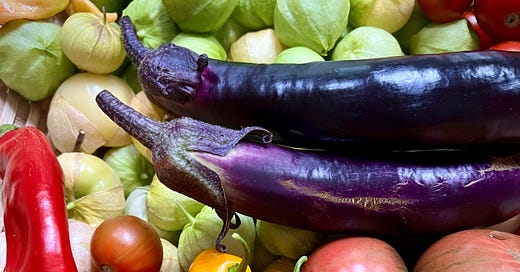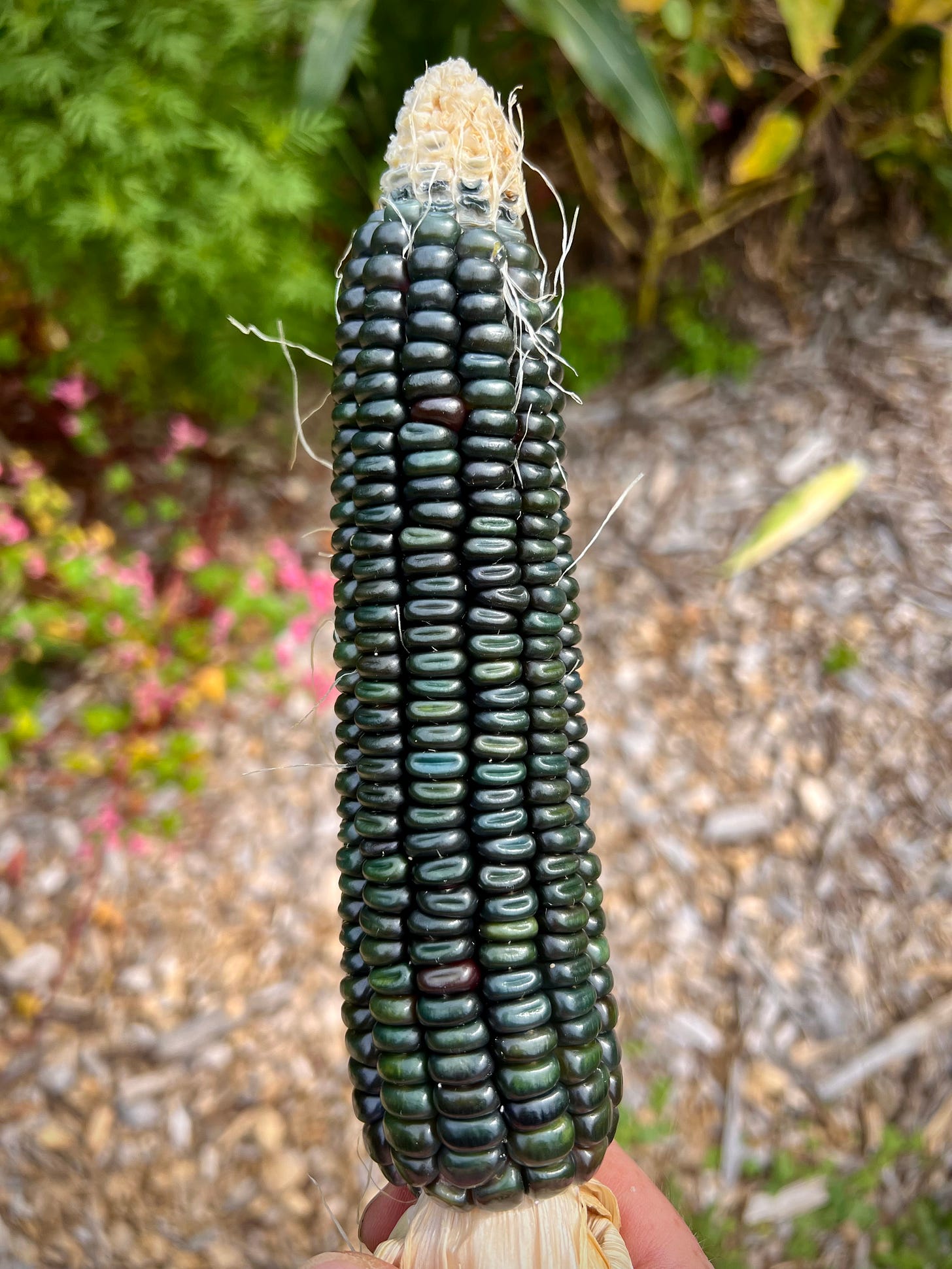We've passed the autumn equinox, but here in the Northeast, garden season is still going strong. Temperatures have cooled, but it's still warm enough to be ripening tomatoes, peppers, and other summer garden staples, which I've continued harvesting en masse.
Before closing out the season, I wanted to provide an update on some hits from various experiments this year. I'll dive into a bunch of stuff in greater detail over the winter, but for now, here are a few things that really jump out.
3 Sisters: A Huge Hit
I spent many hours during the dark days of winter researching the 3 Sisters, an annual polyculture of corn, beans, and winter squash. This system formed the basis of Mesoamerican and North American civilization for thousands of years, and it has been proven to yield more calories per acre than industrial corn monoculture. Crucially, unlike a corn monoculture, the 3 Sisters provides a well-rounded diet, requires minimal inputs, and doesn't deplete the soil, if executed properly.
That last bit is vital. Much of what I read over the winter were reports of people failing in their attempts to grow the 3 Sisters. My research showed that there are clearly right and wrong ways to do it. The method I settled upon proved successful, although there are certainly adjustments I'll make next year.
This is a topic on which I'll do a detailed write-up for my paid subscribers once the season is over, but for now, I'll just say that this was an incredibly encouraging experience. I've only harvested the corn thus far (a compromise I'll explain in the future wrap-up), but the yield was excellent and I saw a ton of winter squash and a decent amount of beans while I was harvesting.
Suffice to say: I can see why the 3 Sisters was such a dominant system for so long. The input-to-output efficiency is unparalleled. I spent, maybe, 5 total days working in this field, all of it light work.
And I can also see why it's fallen out of favor: there is no way to mechanize it. For me, that only gives me a greater affinity for the 3 Sisters. If I imagine the beautiful, deeply meaningful days I spent harvesting and processing corn with my girlfriend—basking in the indescribable beauty of early autumn days while feeling a profound sense of connection to this land and its rich human history—replaced by a couple of noisy hours on an exhaust-spewing tractor, it makes me feel ill. I love the 3 Sisters in part because it demands an analog approach and that has already created an emotional bond for me.





